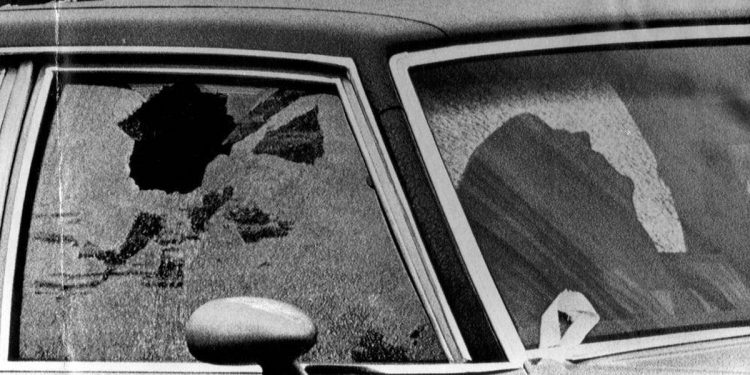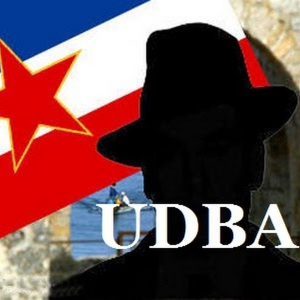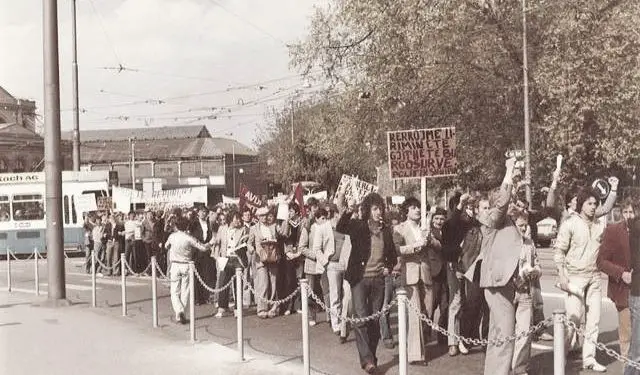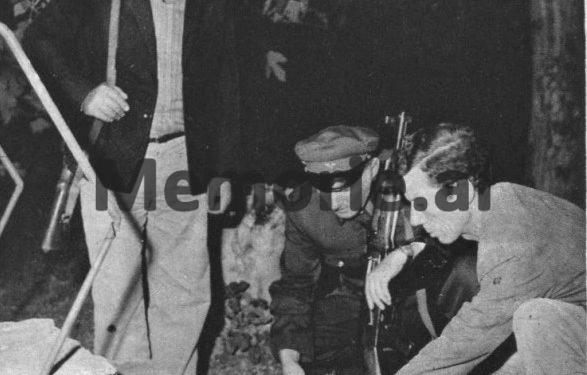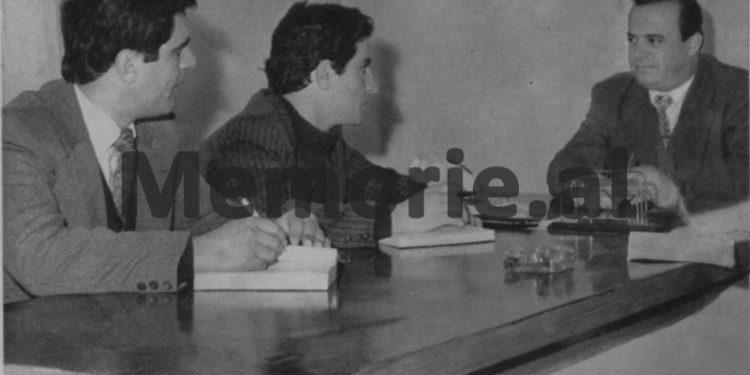By Nafi Çegrani
Part Four
THE PHENOMENON OF YUGOSLAV ESPIONAGE
Memorie.al / Espionage, known since ancient times as the “invisible eye of power,” always took on a tragic and bloody hue in the Balkans. In this space where empires have clashed like waves against rocks, secrecy and betrayal became everyday currency. For Albanians, this phenomenon was not just a technique for rulers to control the people, but a wound that became ingrained in the collective psychology and historical consciousness. At its core, espionage is not simply the collection of information-it is a refined form of violence against the human mind, an intrusion into the most intimate areas of freedom. It mixes fear with suspicion, causing people to lose their inner peace and society to be torn apart by mistrust. In this sense, espionage is the second act of slavery: the first is physical chains; the second is the imprisonment of consciousness.
Continues from the previous issue
1967–1970 – Double Control and Sacrifice
The group of Albanian agents in the diaspora, some of whom were initially recruited by the UDB but were now acting with a moral conscience and secret codes, immediately understood the danger. They used the system of codes and ciphers they had built over the years to warn their compatriots: coded letters were sent to different places, secret meetings were organized in various apartments, and coded verbal messages were carefully transmitted to avoid detection.
On the night of the operation, the tension was unbearable. One of the Albanian students, using secret ciphers and symbols in a message, warned several intellectuals who were traveling toward a critical meeting. They secretly changed their itinerary, and the meeting was held in another location, saving the lives and freedom of the participants.
At the same time, another agent used a coded letter to inform an Albanian professor who was a direct target of the operation. The professor managed to avoid arrest thanks to the warning, while the agent took a double risk: any wrong step could lead to their own arrest and the exposure of the others.
This dramatic night clearly shows the sophisticated double game, where espionage, codes, and ciphers were not just instruments of control, but also means to preserve the integrity and lives of compatriots. The Albanian individuals who used the codes acted with conscience, balancing fear, sacrifice, and moral duty.
Psychologically, they experienced endless tension and a deep moral burden. Sociologically, their actions preserved the cohesion and function of the emigrant community, avoiding division and mistrust. Philosophically, this event shows that morality and conscience can exist even within the labyrinth of espionage, and that personal sacrifice can save the lives of others and preserve the hope of a community.
TECHNICAL MEANS OF DISCOVERY AND SURVEILLANCE BY THE YUGOSLAV UDB
During the communist regimes, the Yugoslav UDB developed a sophisticated apparatus for espionage and surveillance, using the most advanced technical means of the time to monitor the activities of Albanians within Yugoslavia and, especially, the emigration to the U.S. and Western Europe. For these services, information was not just power; it was a weapon that could determine the fate of individuals and communities.
The main technical means used by the UDB included:
Surveillance devices and hidden microphones – The UDB placed devices in public spaces, offices, apartments, and cafes where meetings of Albanian organizations were held. In the U.S., UDB operatives often worked through “local collaborators,” or double agents, to install hidden microphones and record suspicious conversations.
Monitoring of mail and documents – The secret services had hidden networks to track the correspondence of Albanian emigrants. Letters, facsimiles, and later, postal packages, were used to identify diaspora networks and uncover political activities.
Use of technical codes and ciphers – To avoid detection, the UDB used coded systems for transmitting information to Belgrade and other operational offices. This system was similar to the coding methodologies used by the secret services of the Eastern Bloc and required deep technical knowledge from the operatives.
Telephone surveillance and radio communications – Through hidden devices and telephone call interceptions, the UDB identified the meetings, coordination, and communication of emigrant organizations. This method often caused tension and mistrust within the community, as every conversation could be bugged.
Concrete examples from activity in the U.S.:
In the 1960s-70s, a group of Albanian emigrants in Boston was monitored through hidden devices and coded messages. The UDB tried to identify the most active individuals in cultural and student organizations, attempting to influence their political decisions.
In New York and Detroit, some apartments of the Albanian community were discretely observed by double agents and UDB operatives to help gather information on diaspora funds and activities. Letters and postal packages were often seized and analyzed to identify cooperation networks and uncover links to Albania.
This chapter illustrates how technology and espionage merge with human morality and conscience, showing that even from afar, the Albanian diaspora was a sophisticated battleground between control and freedom, fear and courage, surveillance and sacrifice.
It was a cold winter in 1972 in Boston. A group of Albanian students and intellectuals was preparing for a secret meeting at a professor’s apartment, where they would discuss organizing aid for the persecuted in Albania and coordinating with the diaspora in Germany. Unbeknownst to them, the UDB had installed hidden surveillance devices in the building, through a local collaborator, and their every move was being monitored from Belgrade.
One of the Albanian students, who had been a double agent for several years, immediately realized the danger. Using the codes and ciphers the group had built earlier, he sent a secret message to warn the participants to change the meeting location. The message was transmitted through a coded letter, which appeared ordinary to an outsider but carried clear information for those who knew the symbolism.
During the planned meeting, one of the members observed suspicious activity outside the building: an unknown car was parked across the street, and a hidden movement of a listening device could be seen in the apartment windows. The tension rose. The students realized that any wrong step could lead to arrest or deportation.
Thanks to the coded warning, the meeting was moved to another location in Boston, away from the eyes of the UDB. The professor and the main members of the group remained safe, while the surveillance devices of the secret services became useless for that night.
This dramatic action clearly shows the hidden struggle between espionage and moral courage. The Albanian individuals who used the codes and ciphers made a brave decision, sacrificing personal comfort and risking their identity to save their compatriots.
All those who were involved experienced enormous tension and a permanent burden, while sociologically, their actions preserved the cohesion and function of the Albanian emigrant community. Philosophically, this event is an illustration of the power of morality, conscience, and sacrifice in a world where every step could be a risk to life and freedom.
THE ALBANIAN DIASPORAS IN THE U.S. AND EUROPE
Boston, USA – 1970
A group of Albanian students was preparing a cultural magazine to promote the Albanian language and history among the emigrant community. The UDB had placed listening devices in the office where the magazine was finalized. A student initially recruited as an informant, but now aware of the morality of the action, used secret codes to warn his colleagues about important meetings. The magazines were saved from confiscation and the meetings were moved without being discovered, preserving the function of the organization and the lives of the participants.
Frankfurt, Germany – 1972
In a small apartment, several Albanian intellectuals were organizing secret meetings to help the persecuted in Albania. The UDB and State Security had developed a coordinated operation, monitoring the group’s movements with hidden devices and double agents. One of the group’s members used secret ciphers and symbols to warn the endangered members, moving the meeting to another location and saving the participants from arrest.
Paris, France – 1974
An Albanian professor working with cultural organizations in Paris received a coded signal through a secret letter, warning of the infiltration of a UDB agent. He and several colleagues organized an emergency secret meeting in another location, avoiding possible recorded conversations and preserving the cultural activity plan. Their action saved the reputation of the organization and the lives of several active emigrants.
Switzerland – 1975
In Geneva, a small group of Albanian intellectuals was coordinating humanitarian activities for persecuted families in Albania. The UDB used advanced listening technology and mail monitoring to identify the diaspora’s connections. A double Albanian agent used the cipher system to warn the group members and prevent the capture of important funds and documents. This action saved the organization from destruction and maintained trust among the emigrants.
New York, USA – 1976
A group of Albanian organizers in Brooklyn had planned a large meeting to discuss political activities related to Kosovo. A UDB operative, using hidden devices and the help of some local agents, had planned to monitor the event. An Albanian student used the group’s known code to send an urgent message to move the meeting. A quick and coordinated reaction saved the participants from surveillance and the risk of arrest.
These cases show a dramatic and historical chronology of espionage and the courageous reaction of Albanian individuals. They illustrate that: the UDB and the Albanian State Security acted in a sophisticated and perfidious manner. Albanian individuals often used codes, ciphers, and secret tactics to save the organizations and lives of their compatriots.
The stories from Boston, Frankfurt, Paris, Switzerland, and New York are not just historical chronicles; they are a reflection of a hidden battle between power and conscience. The Yugoslav UDB and the Albanian State Security used the entire arsenal of espionage—listening devices, codes, ciphers, and double agents—to control, frighten, and divide Albanian communities in the diaspora.
But, in this dark terrain, Albanian individuals showed that morality and conscience can be more powerful weapons than any technical device. They used the codes and ciphers not only as means of survival but as tools to save the lives of their compatriots, to rescue organizations, and to protect the integrity of the community. Every coded message, every secret relocation of meetings, every timely warning, was an act of sacrifice and moral courage, where personal interest often became worthless in the face of responsibility to others.
The stories of Albanian emigrants are their own narratives, which can also be understood as a testament to the power of conscience: even within the darkness of totalitarian control, the free spirit and moral action can be the light that guides an entire community toward survival and dignity.
ANALYSIS, ELABORATIONS, AND PHILOSOPHICAL REFLECTION IN THE SECRET SERVICES
In the intelligence networks of the communist era, the Yugoslav UDB, OZNA, and the Albanian State Security acted not merely as instruments of control but as complex organisms of surveillance, analysis, and information evaluation. Every report, every coded letter, every signal observed by double agents went through a rigorous process: data collection, information verification, elaboration, and analysis by special operational sectors.
For example, a UDB report on the activities of Albanian students in Frankfurt or Boston was not just an informative document. It included the ciphering of individuals, the analysis of contact networks, risk assessment, and the prediction of possible actions. In Belgrade, these reports were used to create operational schemes, using technical means of surveillance, bugging, and coding, while in Tirana, the State Security analyzed the information to identify internal connections and the impact on emigration.
OZNA, an early Yugoslav service, used similar methods during the first decades of the regime, laying the foundations for the processes of surveillance and data elaboration. Its analyses were structured but always based on moral tension and human risks: every piece of information potentially determined the fate of the individuals involved.
This complicated process of information elaboration reveals a deep paradox: a world dominated by fear and control, where every action of an individual was transformed into data for analysis, was also a moral laboratory. Agents, evaluators, and analysts did not act only for power; they judged, assessed, and often decided the fate of others, while the individuals who faced these espionage networks had to exercise conscience, courage, and operational wisdom to save themselves and the community.
Concrete historical examples illustrate this:
In the 1960s, a UDB report on Albanian students in Boston contained not only names and activities but also an evaluation of influence and risk networks, using secret ciphers and operational codes.
In Tirana, the State Security developed elaborations on emigrants in Germany and Switzerland, combining information gathered from double agents and coded mail. Analysts assessed every action as an opportunity for control but also as a test of human morality and sacrifice.
The former OZNA, in the early years after World War II, collected data on Albanians in Yugoslav territories and the West, using observations, secret signs, and integrated informants, while every analysis had consequences for the life and freedom of individuals.
This technical and analytical process reflects a philosophical dimension of espionage: information is not merely power; it is a test of morality, a battle between fear and conscience, a test of the ability to act rightly, even when every action can have dramatic consequences. The individuals who used codes, ciphers, and operational knowledge to save their compatriots showed that moral courage and personal sacrifice can triumph over the technical sophistication of totalitarian control.
In this way, the history of the UDB, OZNA, and the Albanian State Security is not merely an operational history; it is a reflection on the relationship between power and conscience, between fear and dignity, where every code, every analysis, and every elaboration documented not only the spy activity but also the permanent battle of human morality.
It was the year 1975, as I emphasized above, in the city of Frankfurt, a group of Albanian emigrants was preparing an important meeting to discuss organizing aid for the persecuted in Albania and coordinating with the diaspora in the U.S. and Switzerland. The UDB, in cooperation with the Albanian State Security, had developed a sophisticated espionage operation, using hidden listening devices, mail monitoring, double agents, and detailed operational analyses.
In Belgrade, a special sector of the UDB had prepared a detailed elaboration, where every piece of information about the Albanian group included: contact networks, operational ciphers, the probability of discovery, and the prediction of possible actions by the diaspora. This document, coded with sophisticated symbols and ciphers, was sent to Tirana, where the State Security assessed the strategies and prepared possible actions for arrests and infiltrations.
The Albanian group, familiar with the system of codes and ciphers, immediately understood that any wrong step could lead to the destruction of the meeting and the arrest of the participants. One of the members, who had experienced similar actions before in Boston and Switzerland, used an urgent coded message, warning the participants to move the meeting and to secure the documents.
When the UDB and State Security agents entered the area, they found the apartment empty, while the meeting was taking place in another, secret and secure location. The operational analysis that assumed the capture of the group became worthless in seconds. The Albanian individuals had used their intelligence, codes, and morality to triumph over a sophisticated technical network.
This final dramatic action clearly illustrates the battle between power and conscience. Psychologically, the tension was maximal, but moral courage and wise decisions saved lives and organizations. Sociologically, the Albanian community maintained cohesion and function, not being frightened by the constant pressure of the secret services. Philosophically, the story shows that even in the most sophisticated darkness of espionage, morality, conscience, and personal sacrifice can triumph over technical power and institutional terror.
In this way, the chapter concludes by showing that intelligence networks and operational techniques are not just political history; they are also a human history of courage, moral decisions, and sacrifice. Every code, every cipher, every operational analysis became a testament to the power of conscience and integrity within the Albanian communities in the diaspora and within the borders of the Balkans.
…The intelligence and espionage actions of the Yugoslav UDB and KOS, and even alongside them, those of the State Security, as well as the courageous reactions of Albanian individuals within the diaspora and in the Balkans. Through dramatic stories from Boston, Frankfurt, Paris, Switzerland, and New York, we have seen that espionage is not just a game of power or a political instrument; it is a test of morality, conscience, and human integrity.
Technical power, therefore, cannot destroy the human spirit. Neither the UDB, nor OZNA, nor the State Security could turn fear and control into absolute power; morality and conscience often triumphed over the sophistication of surveillance and operational analysis. / Memorie.al





